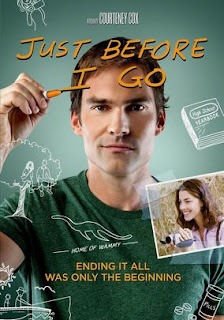Summer is a notoriously quiet time for console gaming, and gaming in general. As such, I took the opportunity during August to try out three games I might not have sampled otherwise.
Murdered: Soul Suspect was a spurious £10 online purchase sometime earlier this year. Its release was tame, reviews were middling, but the concept and premise were at least intriguing; essentially a ghost cop investigating his own murder. If he doesn't solve the mystery, he can't join his (also-) late wife beyond.
Published by Square Enix, and developed by Airtight Games (not AAA developers by any stretch), it's lacking in every department, but it shows enough promise and intrigue to at least hide some of its problems. The camera controls are quite frankly awful, and often put me in direct danger when encountering the game's enemies, Demons. The graphics feel like mid-gen PS3/360 standard, and the presentation and voice acting just feels cheap. The £10 price tag was an early hint.
The reason I've decided to write about this game is because although the gameplay mechanics are undercooked, Murdered: Soul Suspect is familiar to the other games I played this Summer, if only in terms of premise.
Murdered presents a kind of interface through wispy, ghostly swirls emanating throughout the environment, which basically act as beacons for garnering for information in relation to the murder investigation. This presentation is echoed in The Vanishing of Ethan Carter, developed and published by The Astronauts.
Ethan Carter is, as recently penned in line with the release of titles like Gone Home, a walking simulator. It's a game where you can walk or walk quickly, interact with one button and crouch with another. There's little more to it than that, and the game involves the investigation of its titular character, a young boy, whose fate is revealed at the end of the game, but its presentation is arguably the most significant aspect.
The main mechanic involves searching for clues; severed legs, bits of rope, rocks, all of which are encased in a strange ghostly aura, and with every clue you find, you unveil a flashback of exactly what happened to the victim in each case. There are six or seven victims in the game, and unless you find every item related to that investigation, you won't unlock what actually happened. For a game that doesn't exactly hold your hand (it says those very words at the beginning of the game itself), this can often be frustrating.
The mechanics of these investigations is very straightforward, however, in spite of the difficulty that comes with actually locating these clues, and the game looks and sounds great. In fact, the art style and look of the surroundings - in particular some of the buildings you are required to explore - is incredible, and would be welcome in most adventure games. As various message boards will attain, the ending was divisive for many, and confusing for everyone else. I won't spoil it, of course, but it's an ending some Hollywood films go for, sometimes purely because they're not sure how else to end it.
Which brings us on to Everybody's Gone to the Rapture, an August release on PS4, from the makers of Dear Esther, a PC-only game about dealing with loss. 'Rapture, albeit another "walking simulator", is a unique game, and in fact it left a lasting impression on me, for numerous reasons.
The game has you wandering a small village in Shropshire, a place left deserted by everyone, with seemingly no explanation immediately obvious. Once again, there is no hand holding other than a few wispy golden orbs that move about the world - seemingly at random, on first glance - and hint as to which direction you should head towards. There are old fashioned radios lying around the place, as well as various forms of telephones, their static signals and ringing sounds respectively giving you further hints as to where to go, in addition to narrative guidance.
The story of Rapture essentially involves a mysterious outbreak within the village, a pair of couples, an observatory and a grieving farm owner to name but one additional storyline element. Their stories are told piecemeal in the form of spiralling golden auras - no faces or figures are actually ever seen - that show us how these individuals' lives played out moments, hours and days before the "Rapture" took place. There is an Archers feel to the narrative, especially when it is revealed that one of the partners used to be involved with another villager.
There is very much a small town feel to the game, and the controls are as pedestrian - quite literally, the game's biggest criticism is that movement speed is extremely slow, even when using the 'faster' button - but there is a fascinating trait herein. The sense of isolation, loss and distance thrown at the player is very real, and is not something explored in Murdered or Ethan Carter. That feeling of isolation could be claustrophobic for some, and simply downright eerie for others, especially when accompanied by the game's wonderful soundtrack, which is a combination of choral pieces and beautiful instrumental tracks.
One of the game's biggest feats is that it manages to perfect the image of how British villages look; the attention to detail is second to none, and as someone who's lived in a few villages myself, it's easy to see in that respect. Many would feel like the environment is wasted, and that the ending never begins to justify the game's premise, but as an exercise in exploration - with a wonderful score to match - 'Rapture sure is something else.






